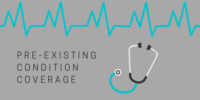What Are the Top Health Savings Accounts for Small Business Owners

Looking for the best health savings account for your small business? We’ve got you covered! In this article, we’ll guide you through the top options available to help you make an informed decision.
From features and benefits to investment options and customer support, we’ll give you all the information you need to find the perfect account that caters to your specific needs.
So, let’s dive in and find the best health savings account for you!
Key Takeaways
- Health Savings Account A offers various account types, tax-deductible contributions, tax-free withdrawals for medical expenses, and potential tax-free growth on investments.
- Health Savings Account B has a competitive fee structure, a wide range of investment options, but may have higher minimum balance requirements or monthly maintenance fees.
- Health Savings Account C is available for small business owners with less than 50 employees, requires a qualified High Deductible Health Plan, and has maximum contribution limits of $3,600 for individuals and $7,200 for families.
- Health Savings Account D provides investment options such as stocks for higher returns, bonds for stable returns, and mutual funds for diversification and risk management.
Account A: Features and Benefits
If you’re a small business owner, you’ll want to know about the features and benefits of Account A, one of the top health savings accounts available.
Account A offers various account types to suit your specific needs. Whether you’re a sole proprietor or have a small team of employees, Account A has options for you.
One of the key advantages of Account A is its tax benefits. With this account, you can enjoy tax-deductible contributions, tax-free withdrawals for qualified medical expenses, and potential tax-free growth on your investments. By taking advantage of these tax advantages, you can save money and provide essential healthcare coverage for yourself and your employees.
Account A makes it easy to manage your healthcare costs while maximizing tax savings, making it a valuable choice for small business owners.
Account B: Pros and Cons
Account B provides a comprehensive overview of its pros and cons for small business owners. When considering a health savings account (HSA) for your business, it’s essential to weigh the advantages and disadvantages of Account B.
One of the pros of Account B is its competitive fee structure. Compared to other HSAs, Account B offers lower fees and charges, saving you money in the long run.
Additionally, Account B provides a wide range of investment options, allowing you to grow your HSA funds.
On the downside, Account B may have higher minimum balance requirements or monthly maintenance fees. It’s crucial to carefully consider these potential charges and compare them to other HSAs before making a decision.
Account C: Eligibility and Contribution Limits
Now let’s talk about the eligibility requirements and contribution limits for Account C.
To participate in this account, you need to meet certain criteria, which we’ll explain in detail.
Additionally, there are maximum limits on how much you can contribute to Account C, and we’ll discuss those as well.
Eligibility Requirements Explained
To determine if you’re eligible for Account C and its contribution limits, consider the following criteria:
- Small business ownership: You must be a small business owner with less than 50 employees to qualify for Account C. This is a great option for entrepreneurs looking to provide health benefits to themselves and their employees.
- High deductible health plan (HDHP): To open an Account C, you must have a qualified HDHP. This means that your plan must have a minimum deductible and out-of-pocket maximum set by the IRS. Make sure to review the guidelines to ensure your plan meets the requirements.
- Documentation: When opening a health savings account, you’ll need to provide certain documentation. This may include proof of small business ownership, such as tax returns or business registration documents, as well as documentation of your HDHP coverage. Be prepared to gather and submit these documents when applying for Account C.
Maximum Contribution Limits Discussed
To maximize your savings potential, it’s important to understand the maximum contribution limits for Account C as a small business owner.
Health Savings Accounts (HSAs) offer tax advantages, but there are limits to how much you can contribute each year. The contribution limits for 2021 are $3,600 for individuals and $7,200 for families.
It’s crucial to note that these limits may change annually, so it’s essential to stay updated.
To make the most of your HSA, consider employing strategies to maximize your contributions. One approach is to contribute the maximum amount allowed each year.
Another strategy is to contribute through payroll deductions, which allows you to make pre-tax contributions.
Account D: Investment Options and Returns
Explore the investment options and potential returns offered by Account D for small business owners like you. Account D provides a range of investment options to help grow your health savings account (HSA) funds.
Here are three investment options that you can consider:
- Stocks: Invest in individual stocks or exchange-traded funds (ETFs) to potentially earn higher returns. This option may be suitable for those willing to take on more risk for potential growth.
- Bonds: Consider investing in bonds for a more conservative approach. Bonds offer stable returns and can be a good option for those who prioritize capital preservation.
- Mutual Funds: Diversify your investment portfolio by investing in mutual funds. These funds pool money from multiple investors to invest in a variety of assets, offering potential returns and risk management.
Account E: Customer Service and Support
When it comes to customer service and support, there are three important factors to consider:
- Timely response rate
- Knowledgeable and friendly staff
- 24/7 availability
You want a health savings account provider that will respond to your inquiries promptly, with staff who are well-informed and approachable.
Additionally, having access to customer support at any time of the day or night can be crucial for small business owners with busy schedules.
Timely Response Rate
Ensure that Account E’s timely response rate for customer service and support meets your small business needs. When it comes to serving your customers, prompt and efficient communication is key. Here are three important factors to consider when evaluating the timely response rate of a health savings account provider:
- Responsiveness: The provider should be quick to acknowledge your inquiry and provide an initial response. This shows their commitment to addressing your concerns promptly.
- Resolution Time: The time it takes for the provider to actually resolve your issue or provide a solution is crucial. A shorter resolution time indicates their dedication to resolving customer issues in a timely manner.
- Availability: It’s important to choose a provider that offers customer support during your business hours. This ensures that you can reach them when you need assistance, improving overall customer satisfaction.
Knowledgeable and Friendly
How knowledgeable and friendly is Account E’s customer service and support?
When it comes to providing friendly customer service, Account E excels in ensuring that their customers feel valued and supported. Their customer service representatives are trained to be knowledgeable about the products and services they offer, and they go above and beyond to assist you with any questions or concerns you may have.
Whether you need assistance with account management, understanding investment performance, or any other aspect of your health savings account, Account E’s customer service team is there to help. They strive to provide prompt and accurate information, making sure that you have all the support you need to make informed decisions about your health savings account.
With their friendly and knowledgeable customer service, Account E is committed to serving their customers with excellence.
24/7 Availability
Account E’s customer service and support is readily available to assist you with any questions or concerns you may have about your health savings account. When it comes to customer service, Account E goes above and beyond to ensure your satisfaction. Here’s what you can expect:
- Prompt and friendly assistance: Whether you have inquiries about the eligibility criteria or need guidance on maximizing the tax advantages of your health savings account, Account E’s customer service representatives are eager to help. They’re knowledgeable and approachable, making it easy for you to get the information you need.
- Multiple communication channels: Account E understands that everyone has different preferences when it comes to communication. That’s why they offer various channels for you to reach out, including phone, email, and live chat. No matter how you choose to connect, you can count on receiving a prompt response.
- Proactive support: Account E takes proactive measures to ensure your experience with your health savings account is seamless. They provide regular updates on any changes to eligibility criteria or tax regulations that may affect you. Additionally, they offer educational resources to help you make informed decisions about your healthcare finances.
With Account E’s exceptional customer service and support, you can rest assured knowing that your health savings account is in good hands.
Account F: Comparison of Fees and Charges
When comparing fees and charges for Account F, you should consider the costs associated with maintaining the account.
It’s important to look at the comparison of interest rates offered by different providers. This will allow you to determine how much you can potentially earn on your savings.
Additionally, it’s beneficial to read customer reviews about Account F to get a better understanding of the overall customer experience. By doing so, you can gain insights into the level of customer service provided, the ease of account management, and any potential hidden fees.
Frequently Asked Questions
Can I Use a Health Savings Account (Hsa) to Pay for Cosmetic Procedures or Elective Surgeries?
You can use a Health Savings Account (HSA) to pay for cosmetic procedures or elective surgeries. HSA funds can be used for a variety of medical expenses, including fertility treatments. Part-time employees are also eligible for HSA benefits.
Is There a Minimum Balance Requirement for Opening a Health Savings Account?
To open a health savings account, you need to meet the eligibility criteria, which may include a minimum balance requirement. Make sure you have the necessary funds before considering opening an account.
Are There Any Penalties for Withdrawing Funds From a Health Savings Account for Non-Medical Expenses?
If you withdraw funds from a health savings account for non-medical expenses, there may be penalties. Additionally, there are tax implications to consider. It’s important to understand the rules and regulations surrounding HSA withdrawals.
Can I Contribute to a Health Savings Account if I Have a High-Deductible Health Insurance Plan Through My Spouse’s Employer?
Yes, you can contribute to a health savings account (HSA) if you have a high-deductible health insurance plan through your spouse’s employer. However, be aware of the HSA contribution limits for small business owners.
Are There Any Restrictions on Using Funds From a Health Savings Account to Pay for Over-The-Counter Medications or Health Products?
You can use funds from a health savings account (HSA) to pay for over-the-counter medications or health products. It’s a great way to maximize your HSA contributions and explore alternative medicine options.









